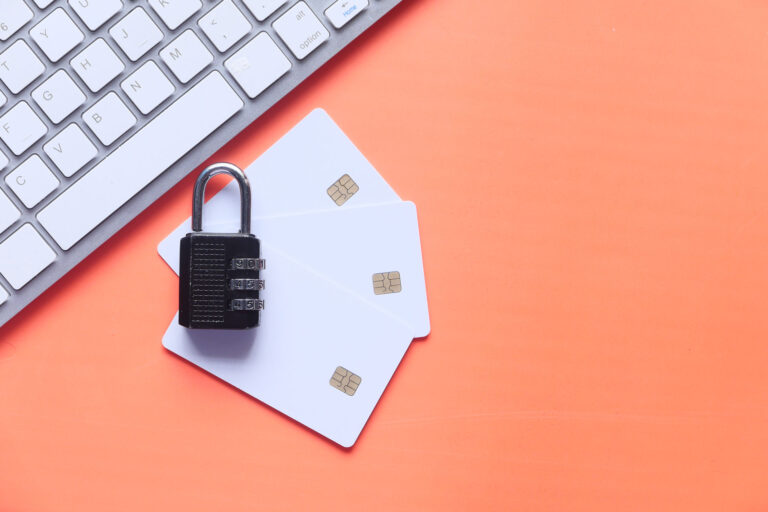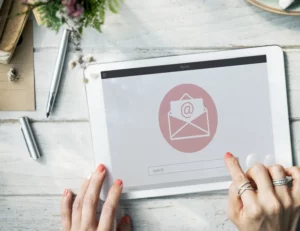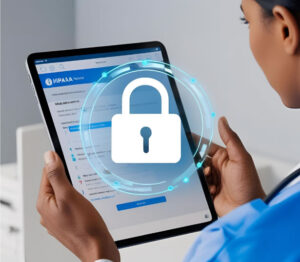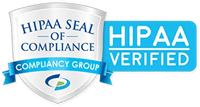Secure email communication is no longer a luxury—it’s a necessity. With cyber threats becoming more sophisticated, both individuals and businesses are seeking reliable encrypted email providers to protect sensitive information and maintain privacy. In this blog post, we’ll break down what makes encrypted email services essential, how to choose the right one, and compare the leading options for 2025, empowering you to make an informed decision about your digital security.
Understanding Encrypted Email Providers
What are encrypted email providers?
Encrypted email providers are specialized email services that prioritize securing your messages through advanced encryption technologies. Unlike standard email services that transmit messages in plain text, these providers use cryptographic protocols to encode emails, making them unreadable to anyone except the intended recipient. They often combine encryption for both the message content and metadata, ensuring that the communication remains private during transmission and storage.
How do they work?
These providers employ encryption standards such as end-to-end encryption, where messages are encrypted on the sender’s device and decrypted only on the recipient’s device. This process often involves key management, where each user has a pair of cryptographic keys—public and private. The sender encrypts the message with the recipient’s public key, and only the recipient’s private key can decrypt it. Many encrypted email services streamline these processes with user-friendly interfaces, allowing even non-technical users to secure their emails without complex setups.
The importance for personal and business use
Using encrypted email providers is crucial for safeguarding sensitive information from cyber threats, including hacking, eavesdropping, and data leaks. For individuals, it protects personal details, health records, financial information, and private conversations. For businesses, encryption ensures compliance with data privacy regulations such as GDPR and HIPAA, safeguards trade secrets, and maintains customer trust. As digital threats grow more sophisticated, adopting a secure email solution is no longer optional but essential for maintaining confidentiality and integrity in communications.
Criteria for Choosing an Encrypted Email Provider
Security features
Look for providers that offer end-to-end encryption by default, zero-access architecture, and robust key management. Features like two-factor authentication, phishing detection, and secure storage further enhance security. Transparent privacy policies and adherence to international security standards are also vital indicators of reliability.
User experience
A good encrypted email provider should be intuitive and easy to use. Features like seamless integration with existing email clients, mobile app support, and straightforward setup processes are essential. Clear instructions on how to send and receive encrypted messages improve overall user satisfaction and adoption.
Pricing and plans
While many secure email services offer free tiers, the most comprehensive features are typically reserved for paid plans. Consider your needs—whether personal or enterprise—and evaluate the cost against the level of security, storage space, and customer support offered. Balance affordability with the assurance of rigorous security standards.
Additional factors
Other important considerations include server jurisdiction (to ensure legal privacy protections), compatibility with other security tools (such as VPNs or endpoint security), and customer support options. For organizations, compliance certifications and auditability are crucial to meet legal and regulatory requirements.
Top Encrypted Email Providers of 2025
ProtonMail
ProtonMail remains a leader in the encrypted email sphere due to its strong privacy policies, open-source cryptography, and user-friendly interface. It offers end-to-end encryption, zero-access architecture, and a strict no-logs policy. Its seamless integration with Proton VPN and Proton Calendar makes it ideal for privacy-conscious users.
Tutanota
Tutanota stands out by encrypting all mailbox data, including subject lines and contacts, which many other providers do not. Its open-source platform and transparent privacy policies appeal to technically inclined users. Tutanota’s easy-to-use interface and affordable premium plans make it accessible for both individuals and small businesses.
Mailfence
Mailfence emphasizes openness and compliance with standards, supporting encrypted email using OpenPGP. It provides complete control over cryptographic keys, detailed security settings, and a collaborative environment with secure document sharing. Its reputation for privacy and transparency appeals to users needing enterprise-grade security.
StartMail
StartMail offers a simple, privacy-respecting alternative for users familiar with traditional email services. It supports S/MIME encryption, anonymous sign-up options, and doesn’t log user activities. It’s suitable for users prioritizing ease of use without sacrificing security.
Analysis
All these services excel in different areas—ProtonMail excels in user-friendliness and strict privacy policies; Tutanota surpasses in comprehensive mailbox encryption; Mailfence emphasizes open standards; StartMail combines simplicity with strong security. When choosing, consider your specific needs—whether it’s ease of use, open-source transparency, or enterprise compatibility. Regardless of choice, these providers set high standards for security, privacy, and usability in 2025.
Free vs. Paid Encrypted Email Services
Free encrypted email services, such as ProtonMail (free tier), Tutanota, and Mailfence, offer essential privacy features, enabling users to send and receive encrypted messages at no cost. These free versions are ideal for individuals who require basic security and are just beginning to explore encrypted email. They often include limited storage, a cap on the number of messages, and some restrictions on advanced features.
Meanwhile, paid plans typically offer additional benefits, including increased storage capacity, custom domain support, multiple email addresses, advanced security features, priority customer support, and integration with other productivity tools. For example, premium options may include an encrypted calendar, secure folder management, and enhanced data recovery options. These features are handy for businesses and power users who require comprehensive security and flexibility.
Trade-offs between free and premium services
While free options are valuable for basic privacy, they often come with trade-offs, such as limited storage, fewer customization options, and potentially weaker support. Paid services offer stronger security guarantees, more control over encryption keys, and additional compliance features that are critical for enterprise environments. They also often provide technical support and Service Level Agreements (SLAs), which are essential for business continuity.
Choosing between free and paid services depends on your individual or organizational needs. For casual users prioritizing privacy on a minimal budget, free services offer solid foundational security. However, for organizations handling sensitive data or requiring regulatory compliance, investing in premium, encrypted email solutions is a wise decision, as it provides access to enterprise-grade security and dedicated support.
Encrypted Email Providers for Businesses
Encryption hosting and tailored solutions
Businesses need more than just individual-level security; they require scalable, compliant, and easily manageable solutions. Many providers offer encrypted email hosting explicitly designed for organizations, featuring centralized key management, role-based access controls, and seamless integration with corporate directories. These solutions often include encrypted email gateways, secure archiving, and compliance reporting tools, enabling organizations to meet strict legal and regulatory requirements.
Enterprise-grade security and compliance features
Some of the best encrypted email providers for business, such as ProtonMail for Business, Cisco Email Security, and Microsoft 365 with encryption, offer robust security measures, including multi-layer encryption, data loss prevention (DLP), audit logs, and activity monitoring. They also support industry standards, such as GDPR, HIPAA, and FedRAMP, ensuring that sensitive data is handled appropriately and legal obligations are met.
Furthermore, these providers often offer features such as domain-based encryption policies, S/MIME support across corporate networks, and secure collaboration tools. Such capabilities empower businesses to uphold trust with clients and partners while safeguarding confidential communications at every level.
Innovative Features in Encrypted Email
What sets some encrypted email services apart?
Leading-edge encryption services are continuously evolving by integrating innovative features that enhance security, usability, and control. Notable among these are self-destructing emails, which automatically delete themselves after a specified time—ideal for sensitive or time-limited information. Many services also incorporate two-factor authentication (2FA), adding an extra layer of login security to prevent unauthorized access.
Additional standout features include:
- End-to-End Encryption (E2EE): Guarantees that only the sender and recipient can decrypt messages, preventing intermediaries or service providers from accessing content.
- Secure attachments and document sharing: Encrypts files sent via email, with options for expiration or one-time access to prevent unauthorized saving or forwarding.
- Encrypted chat and collaboration tools: Some services extend encryption features beyond email to include real-time messaging, file sharing, and collaborative editing while maintaining security standards.
These features demonstrate a significant shift toward more dynamic, user-centric, and versatile encryption solutions. By leveraging such innovations, encrypted email services not only protect data but also improve productivity and user experience, making secure communication easier and more flexible in an increasingly digital world.
User-Friendly Secure Encrypted Email Providers
Balancing security and usability is crucial for making encrypted email accessible to everyday users who may not be tech-savvy. The best encrypted email providers for such users prioritize simple, intuitive interfaces while maintaining strong security standards. For instance, ProtonMail and Tutanota are often praised for their straightforward setup processes, clean design, and user-friendly features that don’t compromise on privacy.
Features that make these services ideal for daily use include easy login procedures, seamless integration with existing email clients, and minimal configuration requirements. Many of these providers also offer browser extensions, mobile apps, and drag-and-drop encryption for attachments—all designed with the non-expert user in mind. As a result, users can enjoy ‘safe encrypted email’ options without additional complexity, enabling everyone to communicate securely without becoming security experts.
Security with convenience is essential for casual users who require quick and reliable privacy solutions. Options like automatic encryption of emails in the background, straightforward key management, and reliable customer support help bridge the gap between high security and everyday convenience. These providers ensure that privacy protection does not come at the expense of ease of use, making secure, encrypted email viable for all.
The Future of Encrypted Email Services
Anticipated advancements in encryption technology promise to make secure email communications even more robust and user-friendly. Quantum-resistant algorithms are likely to become the standard, safeguarding data against future threats posed by quantum computers that can crack current encryption methods. Integration of AI-driven security features will enhance threat detection, spam filtering, and anomaly detection, making encrypted email both safer and smarter.
Emerging trends include greater interoperability between encrypted email platforms and other secure communication tools, such as secure messaging apps and collaboration platforms. This integration aims to create comprehensive privacy ecosystems that protect entire workflows, not just email. Additionally, zero-knowledge encryption models—which ensure that even service providers cannot access your data—will become more prevalent, further safeguarding privacy at the infrastructure level.
Challenges and opportunities lie in striking a balance between encryption strength, usability, and regulatory compliance. As governments grapple with encryption regulations and user privacy rights, providers will need to innovate ways to offer secure yet compliant services. Efforts to standardize encryption protocols and promote open-source transparency will be essential in fostering trust. Ultimately, the evolution of encrypted email services will focus on making top-tier security accessible to all, while adapting to increasingly sophisticated cyber threats and privacy demands.
How to Get Started with an Encrypted Email Provider
Step-by-step guide to signing up and setting up your account:
- Choose a reputable encrypted email provider based on your needs—consider options like ProtonMail, Tutanota, or Mailfence. Visit their official website.
- Sign up for an account: Many providers offer free accounts with premium upgrade options. You may need to provide minimal personal information or create an anonymous profile, depending on your privacy preference.
- Verify your account: Some services require email or phone verification. Follow the instructions provided in the registration email or SMS.
- Configure security settings: Enable two-factor authentication (2FA), set strong passwords, and review encryption options. Most providers automatically activate end-to-end encryption by default.
- Import contacts and keys: If needed, import your contacts’ public keys or exchange keys to enable encrypted communication. Many services provide easy-to-follow guides for this process.
- Test your setup: Send a test encrypted email to yourself or a trusted contact to ensure that encryption is working correctly and that you understand how to encrypt and decrypt messages.
Tips for transitioning from standard to secure email:
- Inform your contacts: Let important contacts know you’re switching to encrypted email and guide them on how to communicate securely with you.
- Migrate essential correspondence: Export important emails from your old account if needed, and use encryption tools to safeguard stored data.
- Update your habits: Always verify encryption settings before sending sensitive information. Maintain secure passwords and enable 2FA for added protection.
- Keep backup keys securely offline. Losing your encryption keys can make decrypting past messages impossible.
By following these steps, you can smoothly transition to a secure, encrypted email provider and start communicating with enhanced privacy.
Ensuring Total Email Privacy and Security
Best practices for maximizing email security and privacy:
- Use strong, unique passwords for your encrypted email accounts—consider a password manager to generate and store complex passwords.
- Enable two-factor authentication (2FA) wherever possible to prevent unauthorized access.
- Keep software up-to-date: Regularly update your email client, browser, and encryption tools to protect against vulnerabilities.
- Verify recipient identities before exchanging sensitive information, especially if using encryption keys or certificates.
- Be cautious with attachments and links: Even in encrypted emails, malware or phishing attacks can succeed. Confirm sender authenticity and avoid suspicious content.
- Secure your devices: Use full-disk encryption, firewalls, and anti-malware solutions to safeguard your hardware and data.
Using encrypted email alongside other privacy tools:
- Employ VPNs: Use a Virtual Private Network to mask your IP address and encrypt overall internet traffic during email communication.
- Use secure browsers and privacy-focused extensions like HTTPS Everywhere, Privacy Badger, or uBlock Origin.
- Adopt encrypted messaging apps for quick, sensitive conversations that don’t require email.
- Limit sharing personal information: Be mindful about what details you include in your email profiles and signatures.
- Regularly review privacy settings on your devices and accounts to ensure maximum control over who can access your data.
By adopting a holistic approach—combining encrypted email services with these habits—you can significantly enhance your overall digital privacy and safeguard your communication channels from evolving threats.
Final Thoughts
Selecting the right encrypted email provider is essential for protecting both personal and professional communications. With privacy concerns on the rise and new features continuously being added to the market, it’s vital to review and upgrade your email security tools regularly. As providers race to implement the latest in encryption and usability, staying informed ensures you always have access to the best and most secure options available. Secure communication isn’t just a trend—it’s a modern necessity, and selecting the right provider is a critical step toward a safer digital future.
Ready to experience unmatched security and user-friendly encrypted email? Switch to MailHippo—the industry’s leading encrypted email provider for 2025. We offer everything you need for secure, private, and effortless email communication, including advanced encryption, seamless setup, innovative features, and scalable business solutions. Don’t wait—protect your inbox today with MailHippo and enjoy peace of mind for all your personal and business correspondence. Share this article with friends and colleagues who care about privacy, and invite them to join the best encrypted email community with MailHippo!






